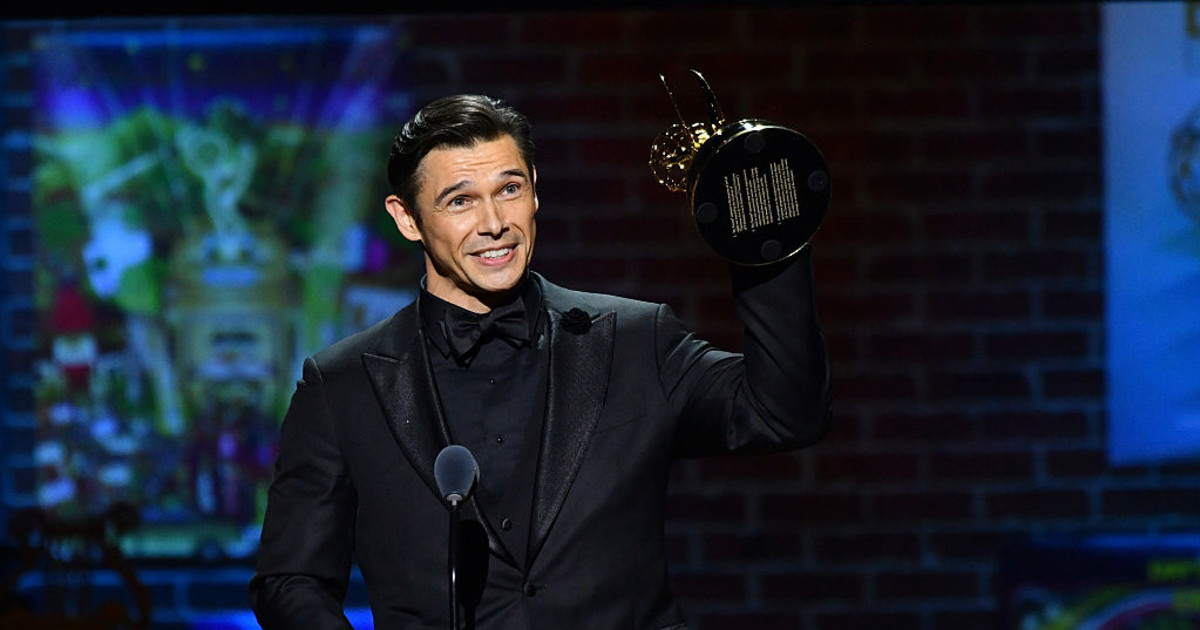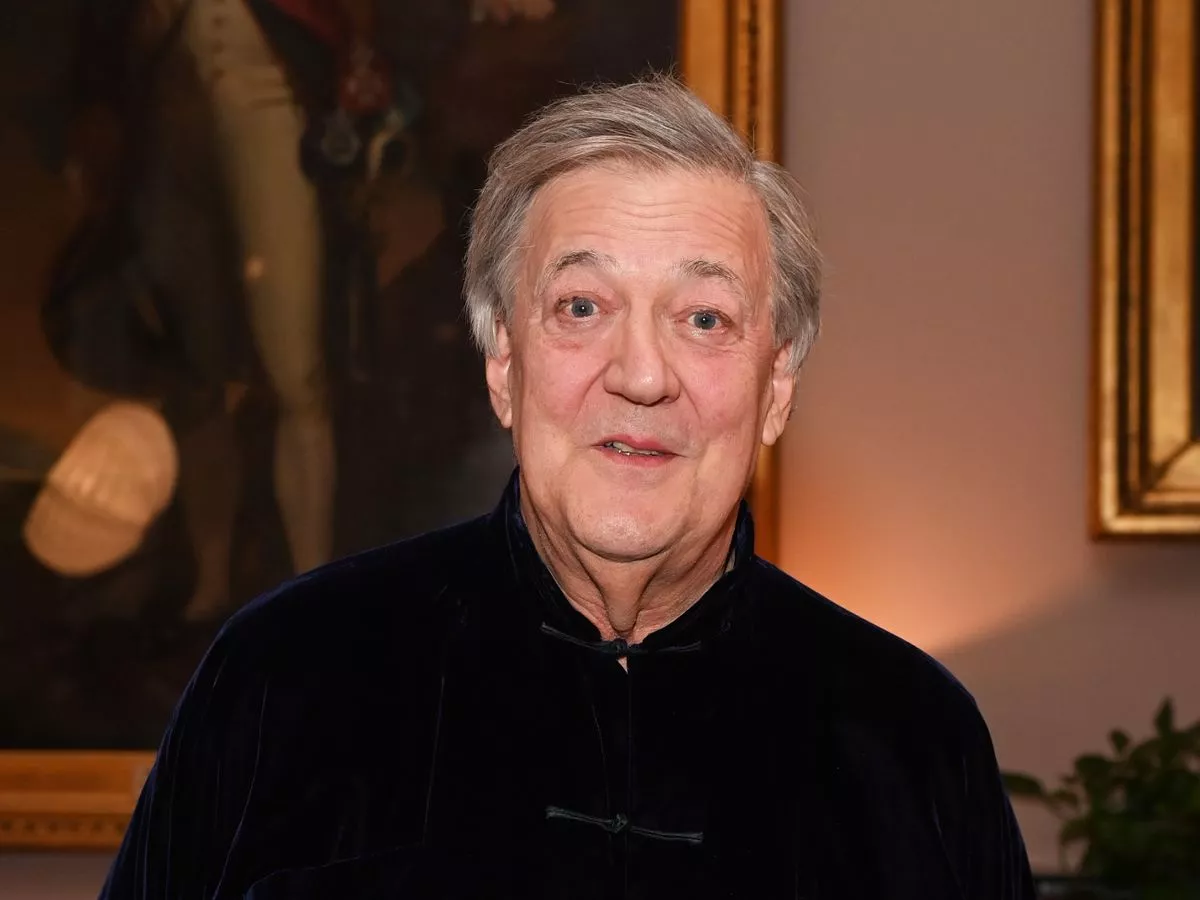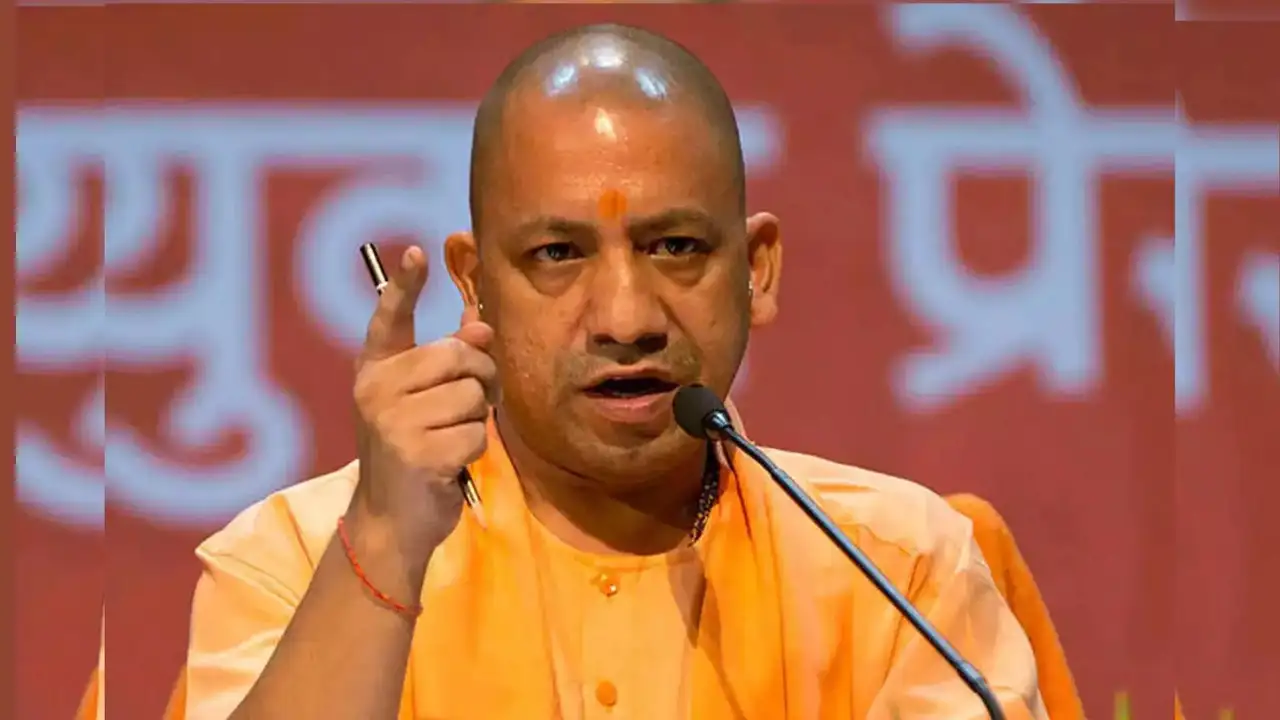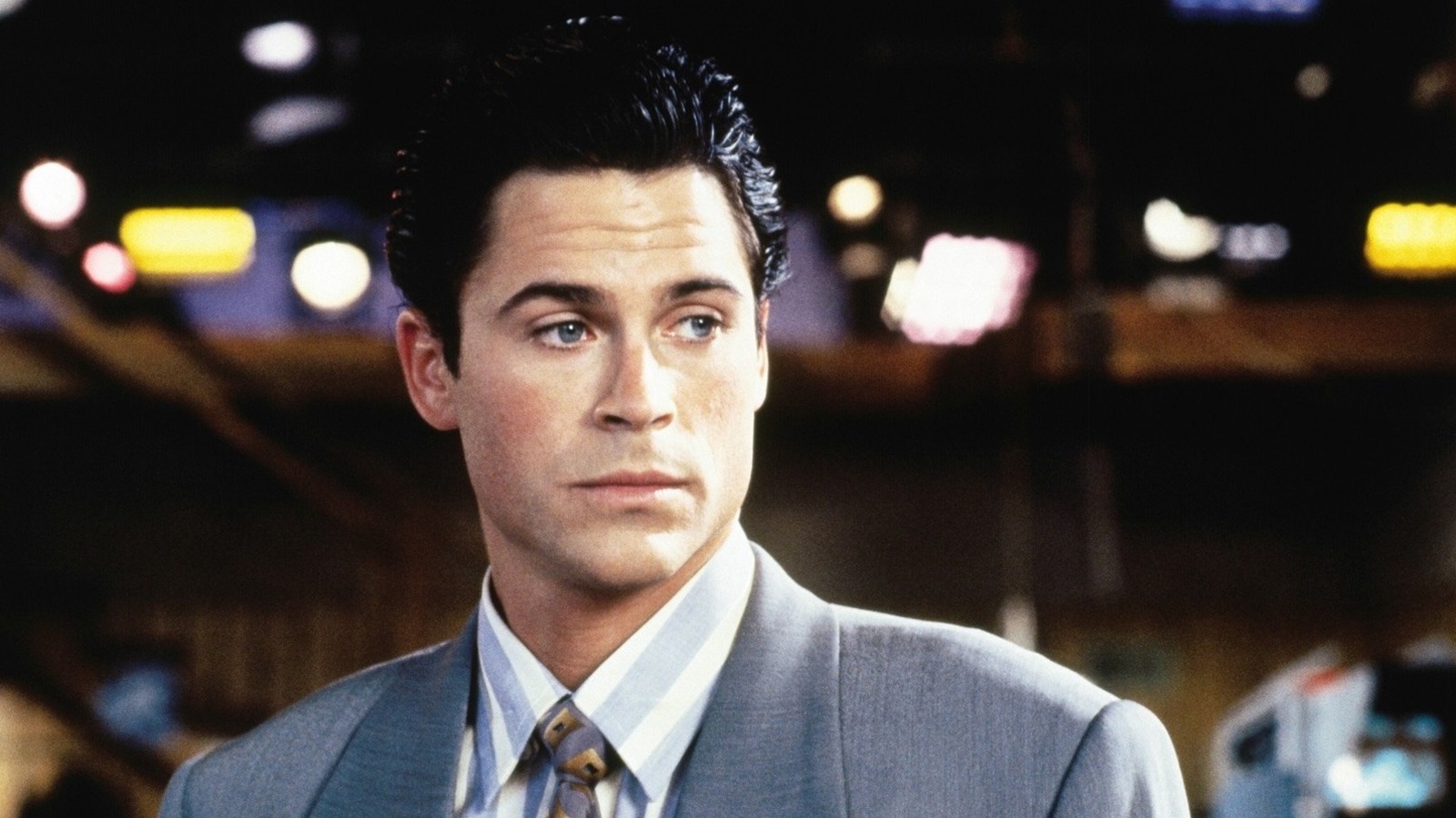Copyright kyivpost
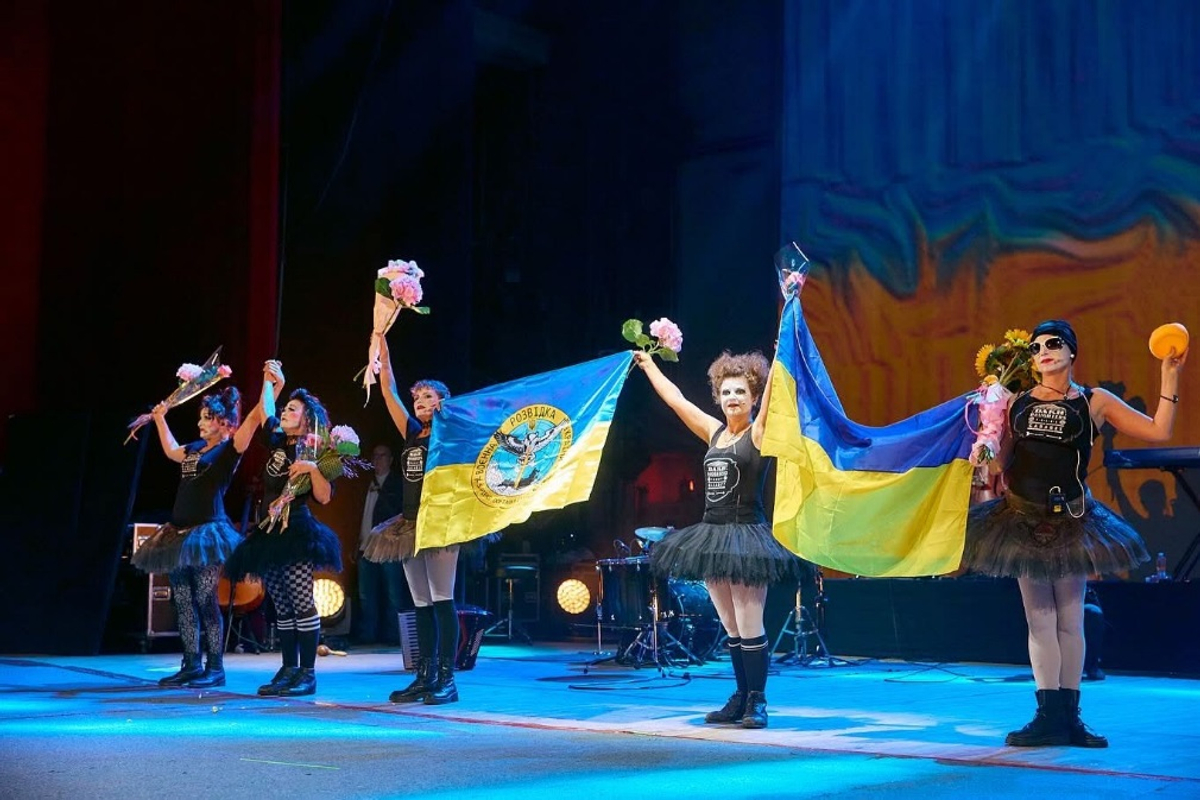
For vocalist Ganna Nikitina, the myth of Pandora’s box resonates because it dramatizes the danger of inaction. “When you don’t react when someone is in trouble, you give permission for the same to happen to you,” she told me backstage. “It is political – not always directly, but its punch is straight to the face. It’s our way of saying: you cannot remain passive.” Humor, too, is essential to their method. “At the start of the war we used shocking visuals, archive footage from the news about Bucha and many other towns that were sites of atrocities,” Nikitina recalls. “But we realized after six months it no longer worked. We couldn’t act only as victims. Ukrainians are not just victims and we needed to find a new language to show this internationally. Humor is very close to Ukrainian people. Especially now – when you don’t know if you will be alive tomorrow, humor gives strength.” This refusal to perform as victims runs deep in the Dakh Daughters’ philosophy. “Sympathy for victims lasts maybe once or twice,” Nikitina said. “If you want long-term support, you must represent your values, your beauty, your culture. You must show why you are ready to die for this.” Ruslana Khazipova, another founding member, echoed the point. “We don’t want to come to other countries only as war victims. We want to bring Ukrainian culture – to show that we can live, smile, love and hate, and create all at the same time. That’s what makes people understand why Ukraine matters. Not just our sacrifice, but our beauty.” For Khazipova, culture is also a way to resist Russia’s long campaign of erasure. “After independence, Ukraine remained heavily Russified. Russia used its culture to kill our identity. They said: you don’t need to think, don’t need to feel, don’t need to hear. Just be obedient. And our hearts atrophied.” Restoring that capacity – to feel, to search, to love – is as much the work of music as of politics. The Dakh Daughters’ shows are immersive multimedia experiences. They blend video projections with poetry, choral chants with punk screams, polyphonic folk harmonies with double bass and drums. At one moment they may sing a Shakespeare sonnet in French, at another a Bukowski poem in English, then switch into a Ukrainian lullaby. Costumes evoke both the grotesque of carnival and the ritual of folklore. This theatricality is not just ornamental; it is ideological. Troitskyi insists that culture itself is a weapon. “Russia has always understood the power of culture,” he says. “They built the myth of ‘great russian culture’ and used it as soft power to justify their hard power. We must build our own mythos. Our cultural identity is now a matter of survival and national security.” New Ukrainian identity The Dakh Daughters’ mission goes beyond simply reacting to the war; it is about actively building a new, multidimensional Ukrainian identity based on confronting history, folklore, rituals, art and literary movements that were almost completely erased. They often draw on Ukraine’s “Executed Renaissance” – the generation of 1920s writers annihilated by former Soviet leader Joseph Stalin. Singer Natalia Halanevych, a poet by training, has unearthed forgotten verses to set to music, giving new life to voices silenced by empire. “This is how they come back,” Nikitina explained. “From their stolen lives into ours.” From frontline trenches and drone operation bunkers to stylish Kyiv cafes, the historically oppressed poetry of Oleksandr Oles is finding great relevance in today’s popular culture, as are Pavlo Tychyna, Olena Teliha and of course Vasyl Stus. Russia sought to ban the writing, kill the authors then erase their memory. Now, from small bars in Podil to the opera house and concert halls, their poems often find new breath as song lyrics. A filmic portrait This ethos also infuses “Roses. Film-Cabaret”, a cinéma vérité documentary directed by Iryna Stetsenko, which PEN Ukraine together with DocuDays Human Rights Film Festival, recently screened in Kyiv. The film, six years in the making with a festival release in 2022, follows the Dakh Daughters from performing at the Euromaidan Revolution of Dignity in 2014, and their show “Roses of Donbas,” and beyond, tracing their evolution as artists and citizens. Shot in rehearsal rooms, dressing rooms, and tour buses, it captures both their joy resilience, dedication and passion. “Roses” reveals how, for the Dakh Daughters, creation is not escape but transformation. The camera lingers on their faces as they sing through the chaos of protests, balancing motherhood with performance, turning grief into collective ritual. “Life is a cabaret,” the film suggests – tragicomic, relentless, yet honest. What emerges is not a heroic epic but a deeply human portrait, told through the women’s eyes, of a society giving birth to its dignity. One feels the urgency of history being written as it is lived. One of the films’ editors Viktor Onysko, serving in the Armed Forces of Ukraine, was killed by Russia near Soledar in December 2022. The Dakh Daughters’ audiences are not passive but alchemical co-conspirators. At home in Ukraine, concerts double as fundraising events – charity auctions for the armed forces. Successful bidders for an array of donated items are invited backstage for autographs and photos after the performance. Abroad, the shows function as cultural diplomacy, conveying Ukraine’s reality in ways no press briefing could. “When we perform in Europe,” Nikitina noted, “we may include more songs in English or French., but the message is the same. It goes straight from our hearts to the hearts of the citizens of these countries. That’s why they understand the need to support Ukraine.” The French award this September formalized what audiences already knew: that the Dakh Daughters are cultural diplomats of the highest order. The Ordre des Arts et des Lettres recognized not only their talent but also their decade-long collaboration with French institutions, from Théâtre du Soleil to the Avignon Festival. In honoring them, France acknowledged that their art “testifies with passion to the struggle of their country.” Toward a new mythos For Troitskyi, the broader task is nothing less than building a new Ukrainian mythos. “Myths are not lies,” he insists. “They are rituals and shared narratives that give meaning. Ukraine’s identity is not unison but polyphony — many voices at once. It is harder to tune, but richer and more authentic than any authoritarian uniformity.” This polyphony is audible in every Dakh Daughters performance. Five women, five timbres, five temperaments — yet together they form a chorus that is unruly and precise, chaotic and disciplined. It is a metaphor for Ukraine itself, fragmented yet resilient, wounded yet powerfully alive. Their work suggests that in the 21st century, cabaret is not decadence but defense. By combining satire with sincerity, grotesque with grace, the Dakh Daughters remind audiences that culture is not luxury but lifeline. When asked about the future, Khazipova is both sober and hopeful. “This war is not only between two governments,” she said. “It is between democracy and totalitarianism. Ukraine cannot stand alone. If we fall, they will go deeper into Europe. That is why we ask for help. Because we want to live as global citizens of freedom.” Nikitina adds: “Now everyone knows we are great fighters. But we are much more than that. We have humor, love, human values, talent. We must find ways to represent it. Our identity was systematically stripped away by the Russian empire then Soviet (Russian) empire, then even after independence by Russian lies and propaganda. Learning and finding it is a matter of our survival. Culture is our defense. It is our primary national security as well as our individual knowing who we are. A tree can’t grow without its roots. We urgently need greater projects for children, and for teenagers about folklore and history for education, for preservation of unique traditions, for lost literary, art and music movements. That is the only way we can build our future. If you don’t know your roots, you can be easily manipulated.” For Troitskyi, the answer returns to freedom – not as license, but as responsibility. “Real freedom,” he says, “is risk and responsibility” He adds: “It means taking a step, accepting duty for family and society. Most people don’t want to have to risk themselves. But Ukrainians are showing what it means.” Their freak cabaret may look like spectacle, but it is also a pedagogy – teaching audiences how to see, how to feel, how to resist manipulation. In their songs, the myth of Pandora’s box becomes a warning; in their humor, an antidote; in their polyphony, a promise that even amidst destruction, a nation can sing itself into being. The myth of great Russian culture is based on passive pessimism, romanticism and idealization of a past that did not truly exist but was built on lies. This sense of Russian imperial patriotism obscures dreams conveying the future. It is incapable of going beyond this and has reached its limits. After centuries of either stealing or erasing Ukrainian culture, the only civilizational hope for Russia will be to learn from Ukrainian culture. Ukraine’s youthful energy reclaiming its ancient roots is concentrated on future building; on freedom, democracy, the right to live and the rebirth of the idea of a strong whole human being. Ukraine’s future, like its freedom, is not guaranteed. In the lament and laughter of the Dakh Daughters, one hears the sound of a people refusing erasure, insisting on visibility, and turning survival into art. The views expressed are the author’s and not necessarily of Kyiv Post.
